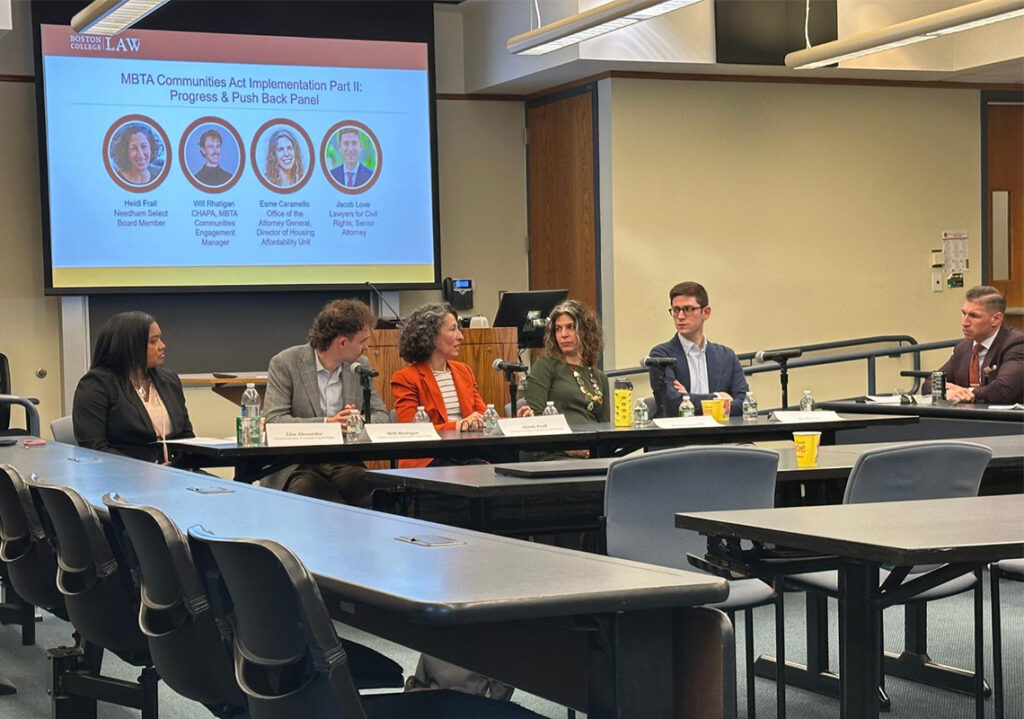Massachusetts’s legacy of exclusionary zoning and racial discrimination has made housing more expensive for everyone in the state by significantly reducing the housing supply.
To help remedy this shortage, the MBTA Communities Act was enacted in 2021 requiring 177 communities to provide for multi-family zoning near transit stops. A number of communities have taken positive steps, but the act has faced opposition in others—even while Massachusetts faces continuing housing cost pressures, supply shortages, and patterns of socioeconomic exclusion.
In April, Professor Lisa Alexander’s Local Government Law students, expert practitioners, and government representatives participated in presentations and a policy panel titled “MBTA Communities Act Implementation Part II: Progress and Push Back” to discuss the current state in applying the law. The students each presented initial research on one of the 177 communities implementing the act, and an expert panel illustrated the law in action and the scrutiny the act has faced since it was passed. The students presented on the municipalites of Bellington, Cambridge, Ipswich, Newton, Salem, and Scituate.
The expert speakers on the panel shared key facets of the act’s implementation, oversight, and advocacy building on discussions from last year’s MBTA Communities Act policy panel. Panelists included Heidi Frail, Needham Select Board member; Will Rhatigan, MBTA communities engagement manager at CHAPA (Citizens’ Housing and Planning Association); Esme Caramello, director of Housing Affordability Unit in the Office of the Attorney General; and Jacob Love, senior attorney at Lawyers for Civil Rights.
The presentations highlighted various strategies that communities undertook to technically comply with the law, while examining reasons underlying resistance to community change. The ambitious law needed to be paired with technical assistance, as the final regulations allow municipalities significant flexibility in deciding where and how they would allow multifamily housing to be built, and how many units their community would be accountable for. Panelists also discussed the dynamics of participatory politics and the considerable amount of time and effort needed to counteract many false narratives about multifamily housing developments.
As Faculty Director for Housing and Property Rights Programs for the Initiative on Land, Housing & Property Rights (ILHPR), Professor Alexander convenes experts on panels to feature the practical experience of legal experts discussing critical policy topics. Students, faculty, and the public are welcome to engage on topics of significant public concern. Previous panels included MBTA Communities Act: Legal Analysis for the Frontlines (2024); Rent Control and Rent Stabilization Bills: What Would They Do (2024); and Beyond Single-Family Housing: Collective Ownership Models and Opportunities (2025).
The initiative invites students and the BC community to engage with invited experts in thoughtful discussion, as the Initiative continues to host policy panels in the upcoming academic year.


